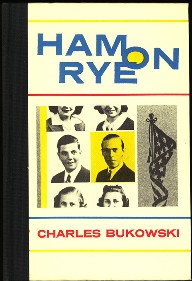
Ham on Rye
Well, for starters, boy does Bukowski love talking about jerking off.
There's a lot of what feels shocking in this book, and I almost wonder what it was like situated in its time — where he was part of some sort of vanguard, albeit a brief one, and the threshold of shock value was at once much lower and much higher than it is today.
But the book is earnest. There is no idolatry; there is no sheen. If you assume that Harry Chinaski is, for all intents and purposes, Bukowski (and you sort of have to, don't you?) Bukowski understood the world and his place in it. For every time he tried to be the tough asshole he recognized that he was just an asshole. There are a lot of pulp fiction comparisons but Harry never wins in any serious sense; his definition of victory is escaping defeat. Some things haven't aged well, but you certainly could argue otherwise — it's impossible for this stuff to age poorly because non-fiction can't age poorly.
And the prose. The prose! Each sentence was like a flat jab. You can't call it singular — he follows in the line of Hemingway and the terse writers before him — but it's certainly delightful and, again, the word that comes to mind is earnest.
This wasn't exactly a fun book to read. I didn't really enjoy it. But it felt very true, which is a quality that I don't aspire to a lot of fiction these days.
© 2023 Justin Duke • I hope you're wearing your favorite sweater.